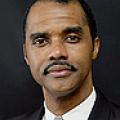From the moment Donald Trump spoke his first words in his 2018 State of the Union address, I was struck by his use of the word “enemy” and his comments regarding the treatment of enemies.
Trump labeled terrorists as “enemy combatants.” His comments about the treatment of such enemy combatants are quite revealing: “When possible, we have no choice but to annihilate them. When necessary, we must be able to detain and question them.”
His words suggest that annihilation should be sought whenever possible and detainment only when necessary.
A rhetoric of annihilation is not new for Trump. In his first address before the United Nations, an organization dedicated to maintaining global peace, he delivered a warlike speech threatening to totally destroy North Korea. And in May 2017, Trump announced his “annihilation campaign” to surround and kill all terrorists.
Listening to Trump’s comments about “enemy combatants,” I was reminded of the biblical story of the prophet Jonah.
Most people familiar with the story of Jonah tend to emphasize the idea of a man surviving in the stomach of a big fish for three days. This component of the story is probably not its most important aspect.
The story of Jonah is a story of a Jewish prophet called by the God of Israel to travel to the Assyrian capital of Ninevah to extend God’s mercy to Israel’s enemy.
The Assyrian Empire was the greatest of the Mesopotamian empires. Assyria was a strong military power bent on conquest. Those who opposed Assyria were punished with barbaric cruelty. Israel suffered such cruelty at the hands of the Assyrians. Not only did the Assyrians execute barbaric cruelty against Israel, they executed that cruelty in the name of “false” gods.
While Jonah is presented as a caricature of a biblical prophet, he is also depicted as a person of faith — a person of faith who believed enemies (especially religious enemies) needed to be annihilated.
While nationalistic sectarian violence and annihilation are promoted throughout the Bible, the book of Jonah challenges a depiction of God as a legitimator of such violence and annihilation.
The book of Jonah places the desire for retaliatory violence within the hearts of people (especially religious people) rather than within the heart of God. It also promotes the idea of “God” as the divine ally of all people.
Like the prophet Jonah, Trump wants the annihilation of his nation’s enemies, especially enemies who oppose America in the name of a “false” god.
When referring to “god” in his SOTU address, Trump spoke specifically of an American god, who is concerned primarily for America.
In his State of the Union address, Trump said:
As long as we are proud of who we are and what we are fighting for, there is nothing we cannot achieve. As long as we have confidence in our values, faith in our citizens, and trust in our God, we will never fail. Our families will thrive. Our people will prosper and our nation will forever be safe and strong, and proud, and mighty, and free. (Emphasis mine.)
Trump’s nationalistic understanding of God resonates with the way many Americans think of God.
Like Jonah’s loyalties, Trump’s nationalistic loyalties make it impossible for him to prioritize caring for people other than his own people or allies of his people.
Criticizing member nations of the U.N. who condemned his decision to recognize Jerusalem as the capital of Israel, Trump said, “In 2016, American taxpayers generously sent those same countries more than $20 billion in aid. That is why, tonight, I am asking Congress to pass legislation to help ensure American foreign assistance dollars always serve American interests and only go to friends of America, not enemies of America.”
This idea of prioritizing national interest and withholding aid to those considered “enemies” is the very reason God chastised Jonah. Jonah’s exclusive faithfulness and loyalty to his own people blinded him to God’s loyalty to all people. I’m afraid Trump also fails to see God’s loyalty to all people, not just Americans.
Many might argue that religion is about personal relationships, not national relationships. While I disagree with this understanding of religion, Americans who believe this should refrain from thanking God for national leaders and from invoking God to legitimate and justify nation-first loyalties over human loyalties.
Got something to say about what you're reading? We value your feedback!







